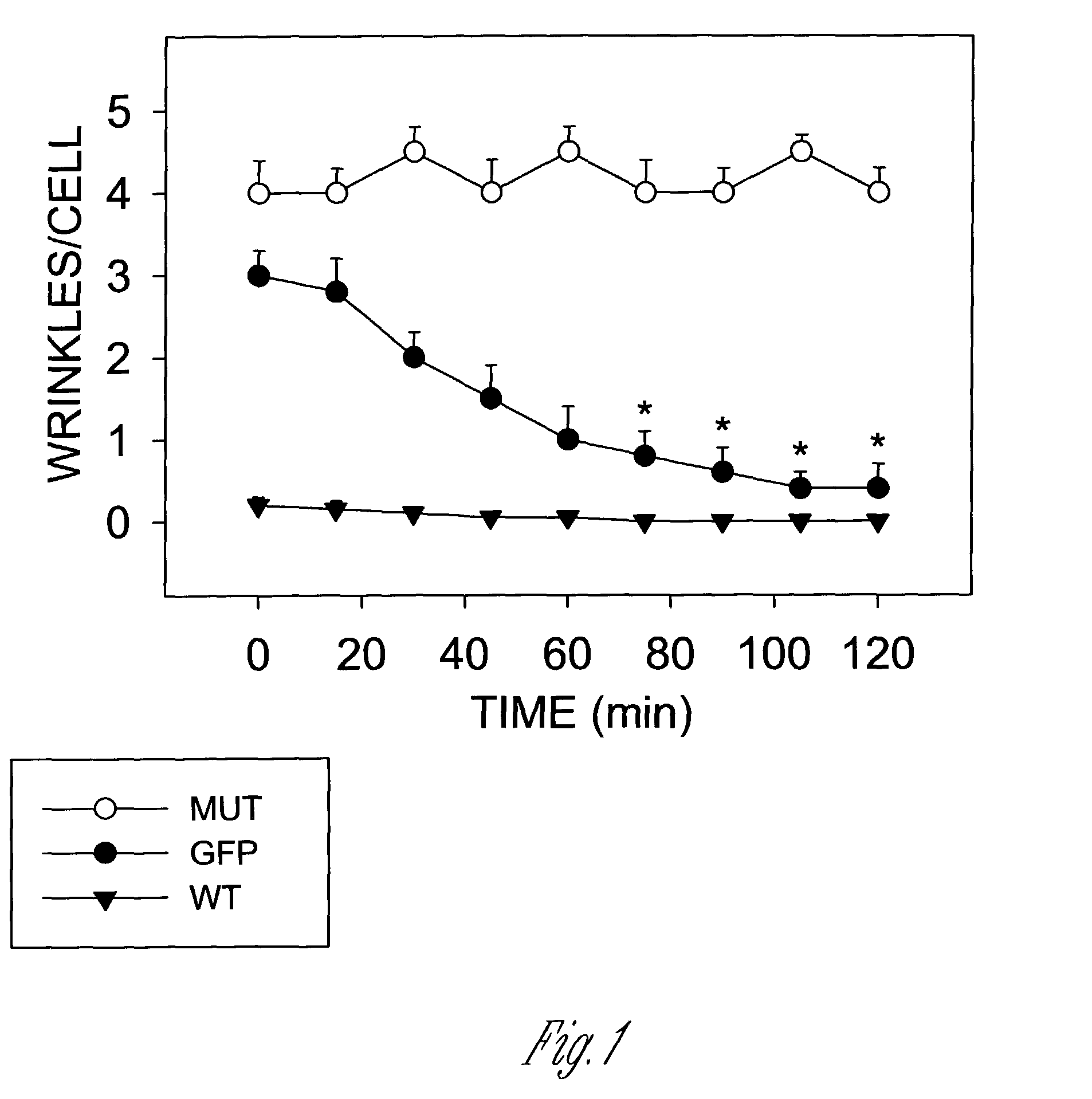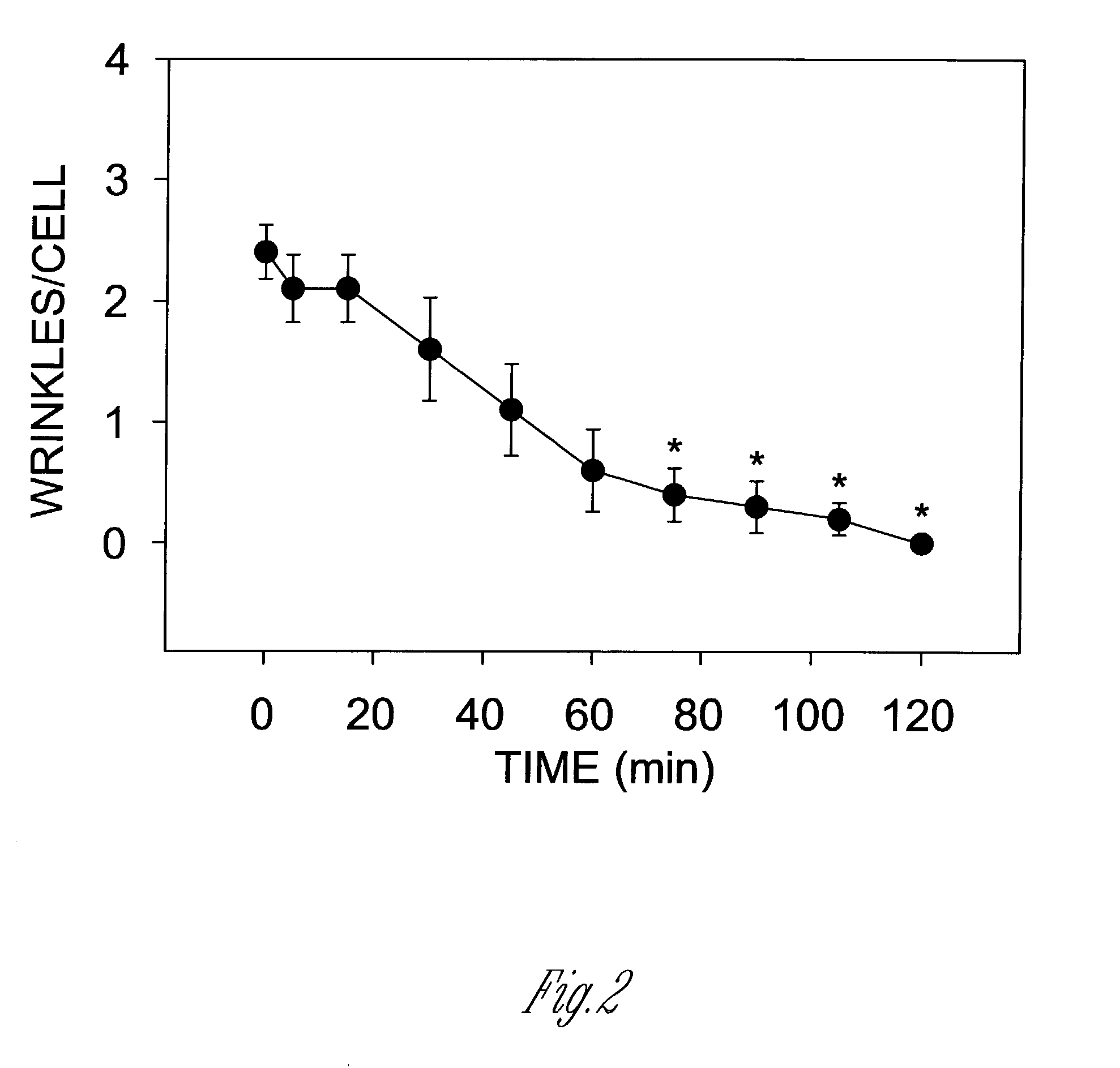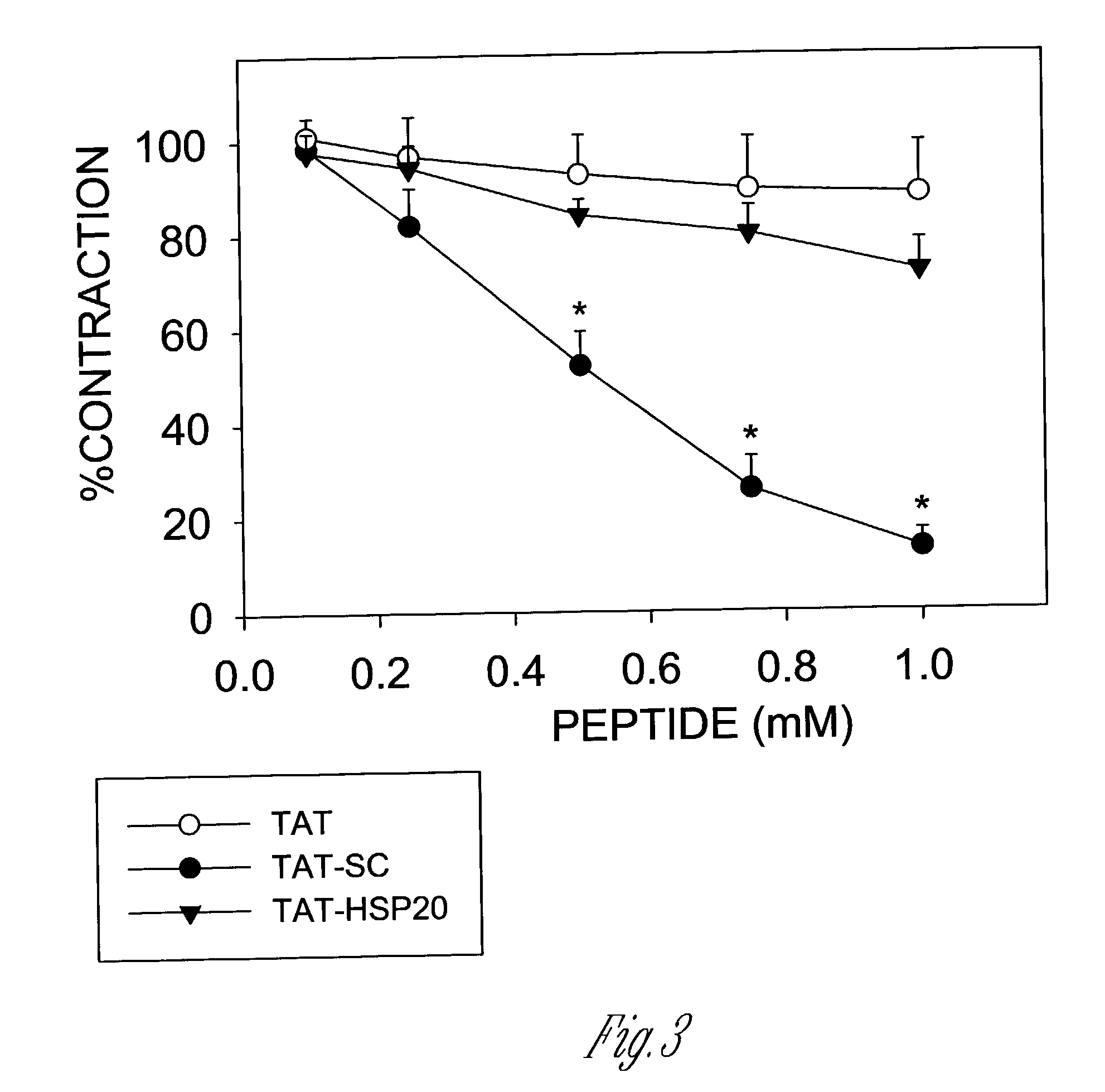Reagents and methods for smooth muscle therapies
a technology of smooth muscle and reagents, applied in the field of smooth muscle biology, can solve the problems of pulmonary (lung) hypertension, ischemia and infarction, ischemia to the organ, etc., and achieve the effect of promoting smooth muscle relaxation
- Summary
- Abstract
- Description
- Claims
- Application Information
AI Technical Summary
Benefits of technology
Problems solved by technology
Method used
Image
Examples
example 1
[0137]This Example illustrates a study of cyclic nucleotide-dependent phosphorylation of HSP20 in mesangial cells. The contractile phenotype and expression of PKG is lost as smooth muscle cells are passaged in culture. Mesangial cells have been shown to maintain a contractile phenotype in culture. To determine if mesangial cells in culture continue to express PKG and HSP20, multiply passaged mesangial cells were compared to multiply passaged vascular smooth muscle cells and smooth muscle cells that had been stably transfected with PKG. The cells were homogenized and immunoblots were performed using rabbit polyclonal antibodies against PKG and HSP20. Multiply passaged vascular smooth muscle cells did not express PKG or HSP20. However, smooth muscle cells that had been stably transfected with PKG express PKG and HSP20. Cultured mesangial cells expressed similar amounts of both PKG and HSP20 as the PKG transfected vascular smooth muscle cells. These data suggest that the expression of ...
example 2
[0138]This Example illustrates the production of the HSP20 S16A mutant wherein the phosphorylation site (serine 16) was mutated to an alanine. The cDNA for HSP20 was cloned into pEGFP-C2 expression vector (commercially available from Clontech, Inc.) For production of the HSP20 S16A mutant, a single nucleotide mutation was introduced in the HSP20 cDNA sequence using a two complimentary oligonucleotide strategy with Pfu polumerase (commercially available from Stratagene, La Jolla, Calif.). All sequences were confirmed for orientation, the presence of the appropriate mutations, and the absence of other mutations, using a 377 Perkin-Elmer ABI Prism DNA sequencer (Foster City, Calif.). Similar techniques can be used to mutate the serine 16 for an aspartic or glutamic acid.
example 3
[0139]This experiment illustrates that genetic manipulation of muscle like cells can alter their ability to contract. Specifically, engineering the cells to overexpress HSP20 prevents them from contracting (going into a state of spasm). If the cells overexpress a mutated form of HSP20 that cannot be phosphorylated, they remain contracted (in spasm) even when treated with potent agents which cause relaxation. This experiment demonstrates that the phosphorylation of HSP20 is the seminal event required for muscles to relax.
[0140]The experiment was performed in the following fashion: Mesangial cells were transfected with vectors containing green fluorescent protein (GFP) alone, GFP fused to the 5′ end of the wild type cDNA for HSP20 (WT), or GFP fused to an HSP20 construct in which the PKA phosphorylation site was mutated to an alanine (S16A-HSP20) (MUT). The cells were plated on a silicone rubber substrata in the presence of serum for 48 hours. The plates were then placed on the stage ...
PUM
| Property | Measurement | Unit |
|---|---|---|
| pH | aaaaa | aaaaa |
| blood pressure | aaaaa | aaaaa |
| nucleic acid | aaaaa | aaaaa |
Abstract
Description
Claims
Application Information
 Login to View More
Login to View More - R&D
- Intellectual Property
- Life Sciences
- Materials
- Tech Scout
- Unparalleled Data Quality
- Higher Quality Content
- 60% Fewer Hallucinations
Browse by: Latest US Patents, China's latest patents, Technical Efficacy Thesaurus, Application Domain, Technology Topic, Popular Technical Reports.
© 2025 PatSnap. All rights reserved.Legal|Privacy policy|Modern Slavery Act Transparency Statement|Sitemap|About US| Contact US: help@patsnap.com



